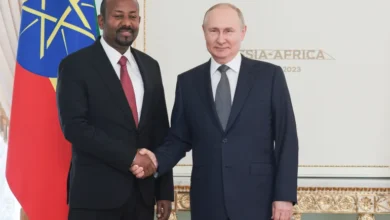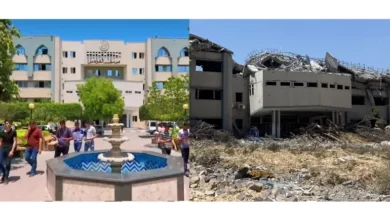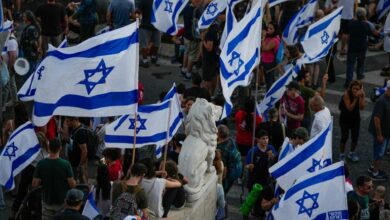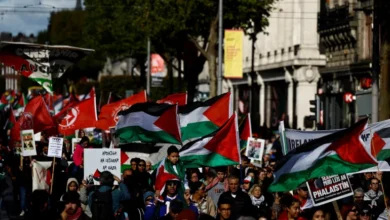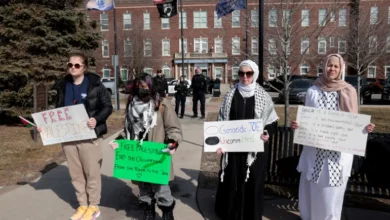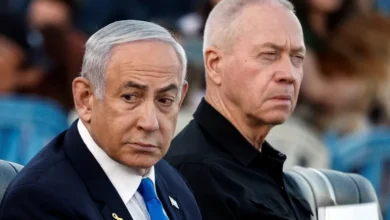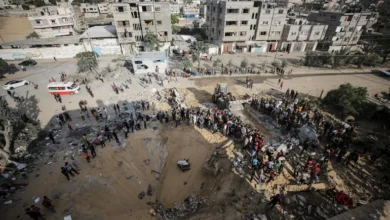For the Indian Muslim, Ayodhya is everywhere
Insiyah Vahanvaty
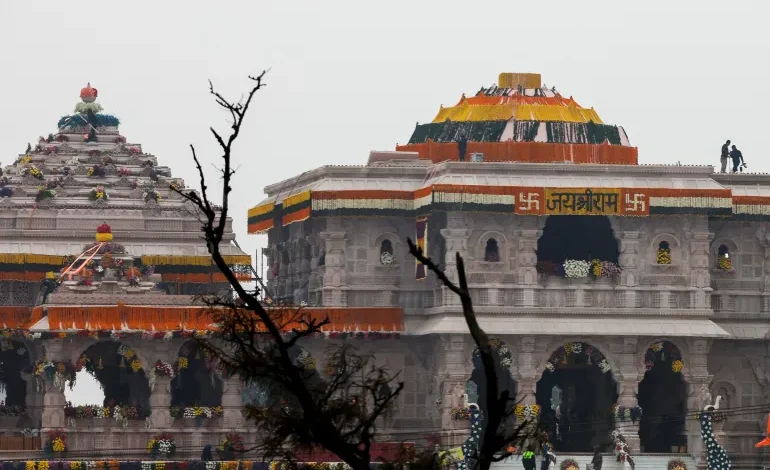
Flipping through the radio channels on my drive to a meeting, I notice four out of the nine pre-sets blare triumphant tunes celebrating the upcoming inauguration of the Ram Temple in Ayodhya. As I turn onto the road that connects Delhi and Gurgaon, I am confronted by an overwhelming burst of saffron.
Illegal squatters who have long since taken over the pavements across this stretch of road have now been roped into peddling saffron flags. Larger-than-life posters depicting a muscular Ram wielding a bow and arrow dominate the streets. Street hawkers eagerly offer smaller versions of the flag adorned with Ram’s visage.
Swords, paintings of deities and cut-outs of Ram punctuate every street corner. I greet the housing society guard with a nod, he responds with a delighted “Jai Shri Ram” (Glory to Lord Rama). The mood is that of a religious carnival rather than an ordinary day of business in the city.
I learn from an enthusiastic WhatsApp message from an eager uncle in our housing society group that cinema chain INOX and Aaj Tak TV channel have tied up to livestream the triumphant inauguration of the Ram Mandir in 160 cinemas and more than 70 cities in India. Complimentary popcorn will be offered.
My news app informs me that the Chairman of the Bar Council of India has requested the Chief Justice of India to declare a holiday in the Supreme Court and High Courts as a gesture “acknowledging the cultural and national significance of the event”. Further, I read a bizarre news item about flight attendants on an Indigo flight dressed up as Ram, Lakshman, Sita and Hanuman, greeting passengers at the gate. Apparently, a Lord Ram read out the boarding announcement.
One has to wonder what truly devout Hindus feel about their beloved gods being reduced to a collection of cheap costumes at an airport or bout such blatant politicisation of religion that has little to do with true devotion.
As an Indian Muslim who grew up in the 1990s, this is all simply bizarre to me. In my view, the significance of a temple – or indeed, a mosque – lies in matters of personal faith and worship and should not be transformed into a political symbol of national pride in a secular country.
The purported “cultural significance” of the Ram Temple appears to be immersed in the murky waters of the polarisation we are currently navigating. Secularism, once a proud virtue every politician embraced, tucking it safely into his political repertoire, appears to be buried so far below the mountains of saffron-tinged communalism, that I fear it may never be recovered.
Never before has my generation seen such a complete capitulation of the state to religion, nor the complete invisibilisation of the Indian Muslim – evident in the fact that for the first time in independent India’s history, India today has no Muslim Chief Ministers, Cabinet Ministers or MPs in the ruling party.
In a simpler time, the very act of a sitting prime minister inaugurating a temple in secular India would have been considered improper and inappropriate.
The demolition of the Babri Mosque is still a collective memory of grief and loss. Many of us remember those killed in the riots that followed the destruction. Despite political promises, the mosque was never restored, and now, a grand temple is to be built over its ruins – a monument to Hindu supremacy.
Browsing Twitter in the morning, I read a tweet by a Muslim influencer, appealing to Muslims in India to practice restraint. To lie low, stay home and not become provoked by the insulting messages and visuals they are sure to encounter. Predictably, the tweet was followed by an onslaught of precisely the kind of offensive messages they had cautioned against.
Among those living abroad, some have opted to cancel their annual visits to India, gripped by the fear of potential violence. Others, living in Ayodhya speak of removing their loved ones from the town for some time. Weddings have been postponed or scaled down. Mosques lay eerily quiet on Friday as local Muslims chose to pray in their homes.
Yet, media channels are falling over themselves to report that a majority of Muslims are “happy” and “emotional” at the construction of the temple.
As Indian journalist Betwa Sharma put it: “If you celebrate while someone else is in pain, something is broken in our society.” And yet, peace is the most precious commodity, clung to desperately. When something is too painful to endure, one simply awaits its passing, hoping for some form of closure. The Indian Muslim has become used to this. The winter has been a long and intimidating one.
